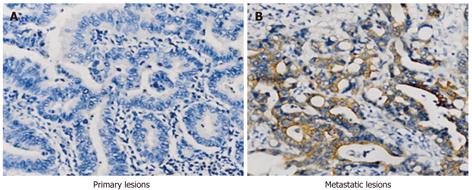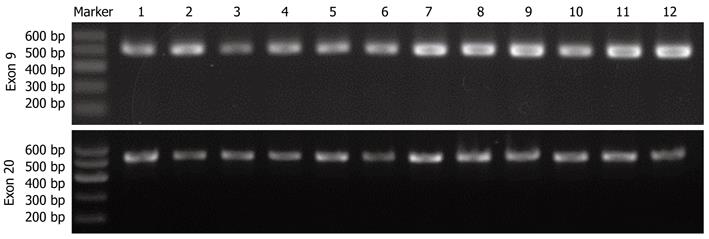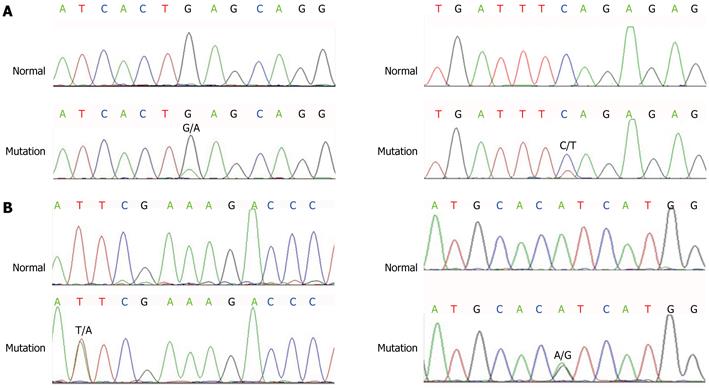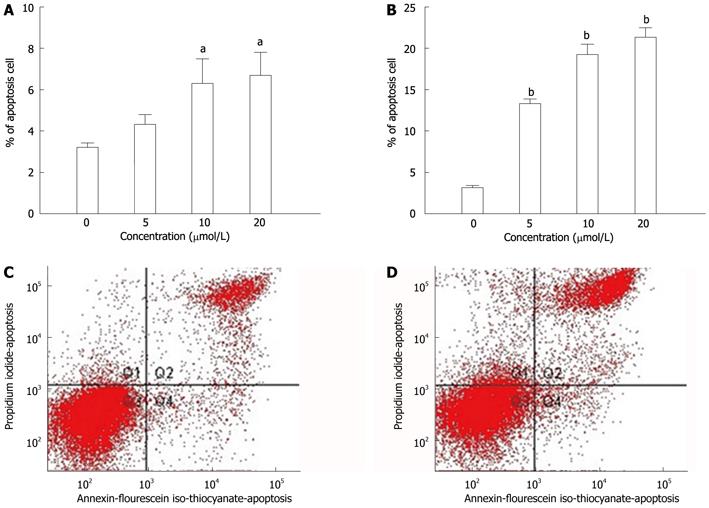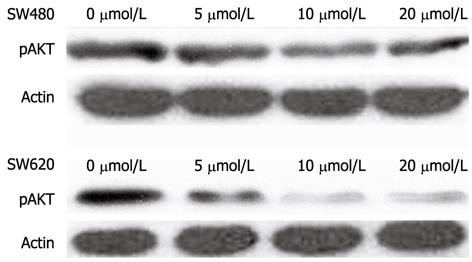Copyright
©2012 Baishideng Publishing Group Co.
World J Gastroenterol. Jul 28, 2012; 18(28): 3745-3751
Published online Jul 28, 2012. doi: 10.3748/wjg.v18.i28.3745
Published online Jul 28, 2012. doi: 10.3748/wjg.v18.i28.3745
Figure 1 Expression of phosphatidylinositol 3-kinase in colorectal cancer by immunohistochemistry staining (enVison × 400).
Figure 2 Representative examples (1-12) of 2% agarose gel electrophoresis results of PIK3CA (exon 9) and PIK3CA (exon 20) polymerase chain reaction products.
Figure 3 Sequencing traces are shown for exon 9 (A) and exon 20 (B) with cancer mutant sequence (bottom) and normal wild-type sequence (top).
Figure 4 LY294002 induced apoptosis in human colorectal cancer cells with different metastatic activities.
Induction of apoptosis in human colorectal cancer cells SW480 (A) and SW620 (B) by LY294002. Cells were exposed to various concentrations of LY294002 for 48 h followed by examination with annexin V-flourescein iso-thiocyanate Apoptosis Detection kit. SW620 cells were exposed to 5 μmol/L (C) and 20 μmol/L (D) LY294002 and analyzed by flow cytometry. All assays were done in triplicate [aP < 0.05, bP < 0.01 vs control group (0 μmol/L)].
Figure 5 Effect of phosphatidylinositol 3-kinase inhibitors on protein kinase B phosphorylation in colon cancer cells.
- Citation: Zhu YF, Yu BH, Li DL, Ke HL, Guo XZ, Xiao XY. PI3K expression and PIK3CA mutations are related to colorectal cancer metastases. World J Gastroenterol 2012; 18(28): 3745-3751
- URL: https://www.wjgnet.com/1007-9327/full/v18/i28/3745.htm
- DOI: https://dx.doi.org/10.3748/wjg.v18.i28.3745













